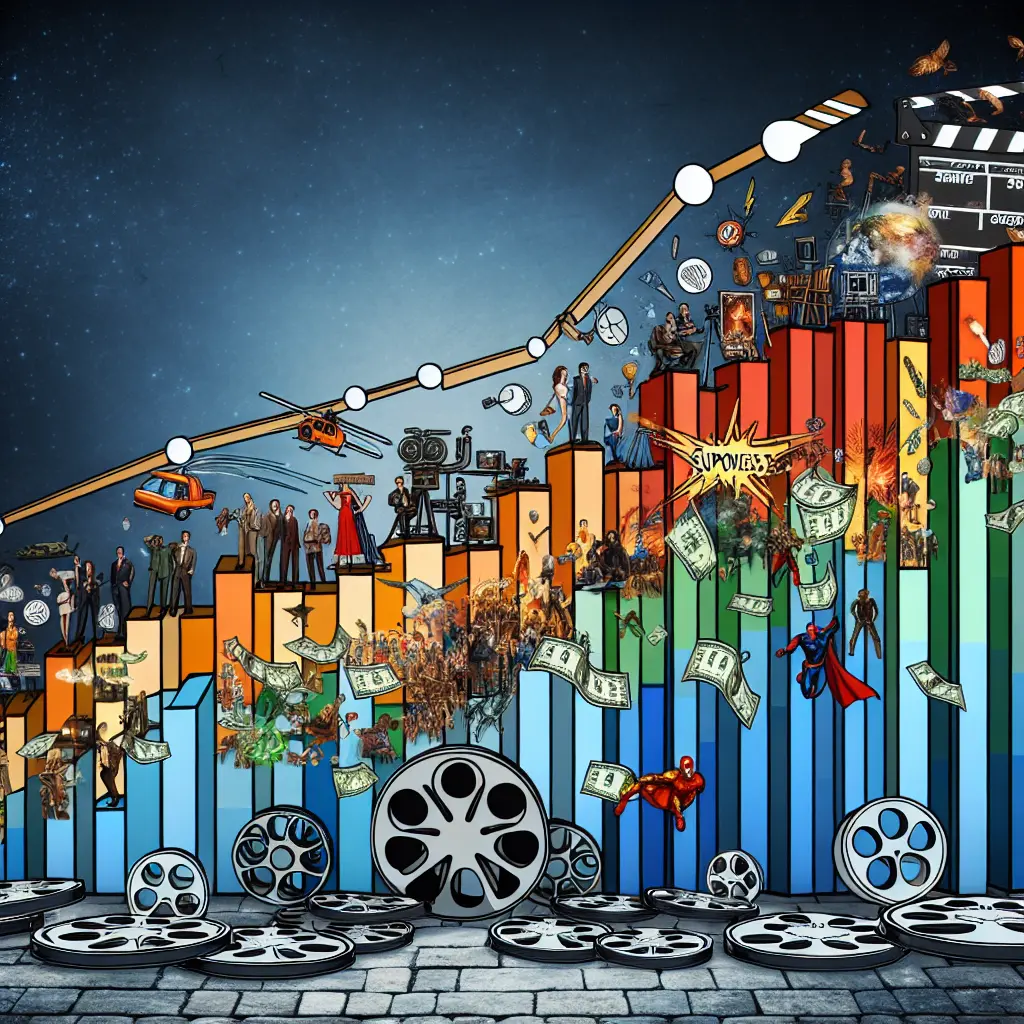
In the world of cinema, few franchises have made as significant an impact as Marvel Studios. With a series of blockbuster hits that have captivated audiences worldwide, the Marvel Cinematic Universe (MCU) has not only reshaped superhero storytelling but has also had a profound economic impact on the film industry. From box office earnings to market growth, the influence of Marvel movies is undeniable.
The Marvel movies' economic impact is most vividly seen through their box office earnings. Since the inception of the MCU, Marvel films have consistently shattered box office records. For instance, "Avengers: Endgame" alone amassed nearly $2.8 billion globally, making it the highest-grossing film of all time at its release. This trend underscores a broader pattern within the MCU’s success story, contributing significantly to film industry revenue from Marvel productions.
When discussing Marvel cinematic universe profitability, it's important to consider the return on investment (ROI) these films generate. The MCU films often boast substantial budgets, sometimes exceeding $200 million, yet their returns are exponentially higher, often crossing the billion-dollar mark. This high ROI not only highlights the financial success of Marvel movies but also illustrates the economic benefits of superhero films, which offer lucrative opportunities for studios and investors.
The superhero movies' economic influence extends beyond mere earnings. Marvel Studios' market growth reflects a strategic expansion that influences various sectors within entertainment. Merchandising, streaming rights, and even theme park attractions are part of this extensive economic web. For example, merchandise like Hasbro’s Green Goblin replica helmet enhances fan engagement and adds an additional revenue stream.
Marvel's effect on the entertainment industry is further evidenced by its influence on Hollywood economics. The studio's approach to interconnected storytelling across multiple phases and series has prompted other studios to adopt similar strategies, hoping to replicate Marvel’s success. This has led to a significant shift in how blockbuster films are conceptualized, produced, and marketed.
The financial impact of blockbuster films like those from Marvel also extends to global earnings. The Marvel franchise's global earnings reflect its widespread appeal, transcending cultural and geographic boundaries. This universal appeal is crucial in today’s globalized market, where international box office revenue often surpasses domestic earnings.
Marvel vs DC box office comparisons often highlight this aspect, showcasing Marvel's consistent ability to outperform its rivals. This rivalry underscores the competitive nature of the film industry and Marvel's dominance in terms of market share and fanbase loyalty.
Investment in Marvel movies has proven to be exceptionally fruitful. Disney’s acquisition of Marvel Entertainment in 2009 for approximately $4 billion has been tremendously profitable, with MCU films grossing over $22 billion at the global box office since then. This acquisition highlights strategic investment decisions that leverage existing popular content to generate substantial economic returns.
The financial success of Marvel movies is not merely about numbers; it also influences other industry aspects such as digital effects advancements and cinema technology improvements, driven by the need to meet the high expectations Marvel films set.
A recent analysis of Marvel cinematic universe box office performance reveals interesting trends and strategies that contribute to its success. For instance, Kevin Feige's appearance at Comic-Con 2024 and his discussions about future Marvel projects like the introduction of X-Men into the MCU and updates on Spider-Man 4 play a significant role in maintaining public interest and hype around upcoming releases.
Marvel movie sales statistics consistently indicate strong performance across various demographics and regions. This widespread appeal is strategically boosted through engaging marketing campaigns and collaborations, such as unique comic book events or exclusive toy releases, further embedding Marvel into popular culture.
Recent developments in the MCU also hint at sustained growth and innovation within the franchise. For example, "Deadpool & Wolverine" not only promises to scale new heights of cinematic self-awareness but also explores character dynamics with a fresh narrative approach, as indicated by the intriguing first 40 minutes of the film showcased recently.
Looking ahead, Marvel Studios has announced several new release dates, stirring excitement and speculation among fans and stakeholders alike. These releases are expected to continue driving significant traffic to cinemas worldwide, sustaining Marvel's critical role in the film industry's revenue streams.
In conclusion, the economic impact of Marvel movies on the film industry is multifaceted and profound. From enhancing film industry revenue through blockbuster box office earnings to influencing Hollywood economics and global market trends, Marvel has set new standards in entertainment. As we look forward to more innovative storytelling and groundbreaking cinema from Marvel Studios, it remains clear that the superhero genre, particularly Marvel's interpretation of it, will continue to be a pivotal player in shaping the future of film.
Arthur Barnes